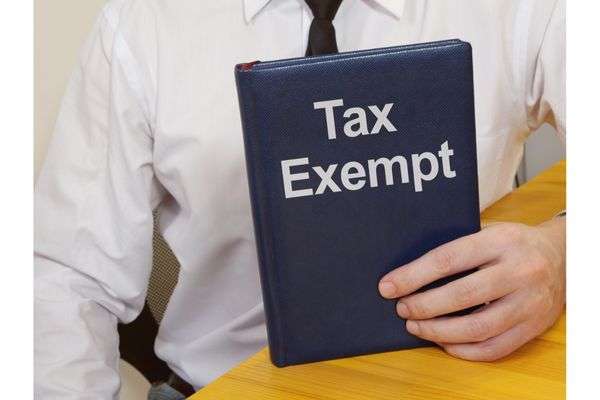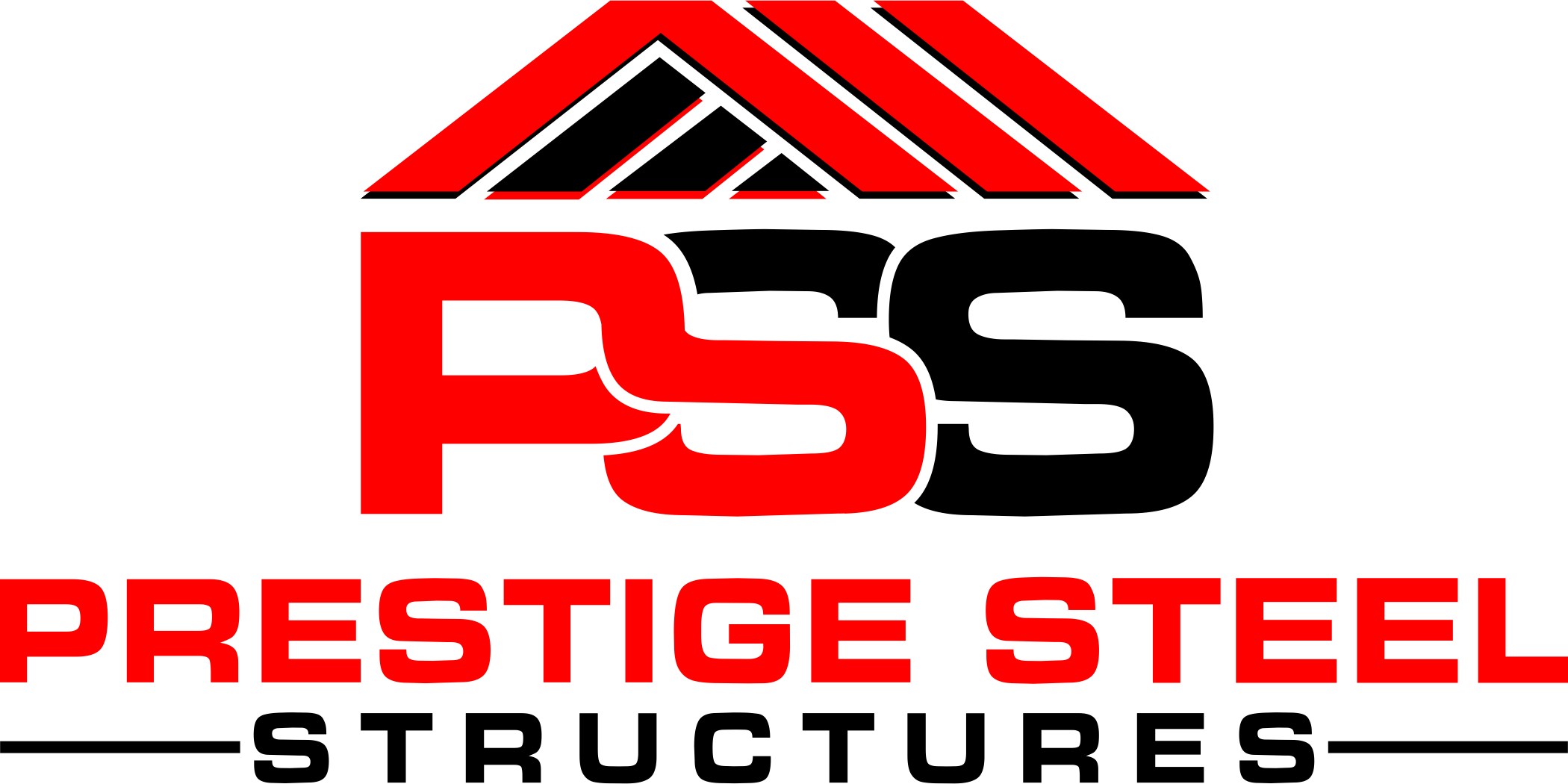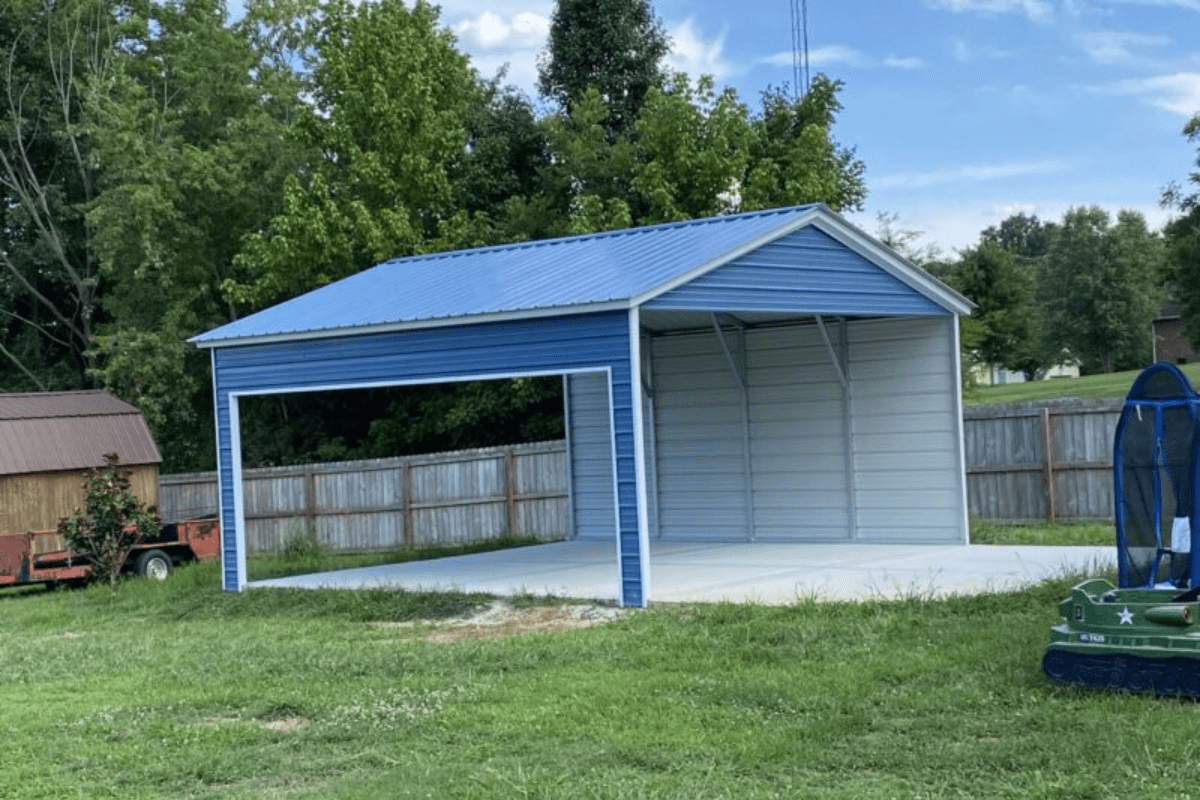If you’re considering adding metal carports to your property, you might wonder, “Will this affect my property taxes?”. The answer isn’t always straightforward—it depends on your location and how the carport is classified. In this guide, we’ll walk you through the key tax considerations for carports, helping you understand how metal structures may impact your taxes and, in some cases, ways to avoid extra tax costs. Whether you’re a homeowner or a business owner, knowing these details can save you money in the long run.

Understanding Sales Tax on Carports: What You Need to Know
When purchasing a metal carport, it’s important to factor in potential sales tax costs, which generally fall into two categories:
- Sales Tax on Materials
Most states classify carport materials as taxable goods. This means that when you buy the materials, you’ll need to pay your state’s standard sales tax rate on them, just like you would for other building supplies.
- Sales Tax on Labor
Not all states tax labor costs. In fact, several states exempt labor from sales tax, which can make a significant difference in your overall cost. Since labor typically accounts for 20% to 40% of a carport’s price, living in a state without a labor tax could mean major savings on your purchase.
Before installing your carport, check your local tax laws to see how these factors apply to you—understanding them ahead of time can help you budget more effectively and potentially save money.
How to Avoid Paying Sales Tax on a Carport (Legally!)
If you’re looking to purchase a carport while minimizing costs, you may be wondering if there’s a way to legally avoid sales tax. While most buyers will have to pay sales tax, there are three key exceptions that might apply to your situation:
- Agricultural Tax Exemption
If your carport will be used for agricultural purposes—such as storing farm equipment, feed, or even sheltering livestock—you may qualify for a sales tax exemption in many states. Be sure to check with your local tax office to see what documentation is required to claim this exemption.
- Energy Efficiency Credits
If you add solar panels to your carport or integrate it into a renewable energy system, you may be eligible for state or federal tax credits. Some states even offer incentives for using energy-efficient materials, which could further offset the cost.
- Living in a Sales Tax-Free State
The most straightforward—but least practical—way to avoid sales tax is to live in a state that doesn’t charge it. Currently, Alaska, Delaware, Montana, New Hampshire, and Oregon do not impose sales tax, meaning purchases in these states are automatically tax-free.
Before purchasing a carport, check with your local tax authority to see if you qualify for any of these exemptions—it could save you a significant amount of money in the long run!
Do Carports Affect Property Taxes? Here’s What You Need to Know
Adding a carport to your property can provide valuable protection for your vehicles, but will it increase your property taxes? The answer depends on a few key factors:
- Temporary vs. Permanent Structures
- Temporary Carports: If your carport is not permanently attached to the ground—such as a portable or freestanding structure—most property assessors will not consider it taxable.
- Permanent Carports: If your carport is anchored into a concrete foundation or attached to your home, it may be classified as a permanent structure. This could increase your property’s assessed value, potentially raising your property taxes.
- Local Tax Regulations
Property tax rules vary by city and county. Some areas may tax all structures, while others only tax those above a certain size or permanently affixed to the property. Before installation, it’s a good idea to consult your local tax assessor or property tax office to understand the specific regulations in your area.
By knowing these factors in advance, you can make an informed decision about your carport and avoid any unexpected tax increases.
How Property Taxes Are Assessed: What You Need to Know Before Adding a Carport
Before exploring ways to avoid a property tax increase when installing a carport or metal building, it’s essential to understand how property taxes are determined.
Why a Carport Could Increase Your Property Taxes
Property taxes are based on the assessed value of your property, which includes the land and any permanent structures. When you add a new structure, your local tax assessor may reevaluate your property’s value, potentially leading to a higher tax bill.
Key Factors Tax Assessors Consider
- Foundation Type – A carport that is anchored to the ground with a concrete foundation is more likely to be classified as a taxable permanent structure.
- Attachment to Existing Structures – If your carport is connected to your home or another building, it may be seen as an extension of your property, increasing its assessed value.
- Size and Materials – Larger carports made from high-quality, durable materials may be considered an improvement, leading to a higher valuation.
Understanding these factors can help you make strategic decisions when choosing and installing a carport, potentially minimizing its impact on your property taxes.

How to Avoid Increased Property Taxes When Adding a Carport
Property taxes are a significant expense for homeowners, so it’s natural to want to avoid any unnecessary increases. If you’re considering adding a metal carport or upgrading your garage, it’s important to understand how it may affect your tax assessment. While some structures can raise your property’s taxable value, there are ways to minimize or avoid an increase. This guide will walk you through the best strategies to ensure your carport adds convenience without leading to higher property taxes.
How to Avoid Permanent Carport Foundations and Keep Property Taxes Low
If you anchor your carport directly to the ground, gravel, or concrete, your local government will likely classify it as a permanent structure, which could increase your property taxes. To keep your carport classified as portable or temporary, avoid using permanent foundations. Here are a few ways to accomplish this:
- Install the Carport on a Wood or Block Foundation
Mounting your carport on a wood or block foundation is one of the most cost-effective and durable ways to ensure it is considered portable rather than permanent. This method provides stability while helping you avoid property tax increases.
Important Note: Some manufacturers may void their warranty if the carport is not anchored to a traditional foundation, so check your warranty terms before choosing this method.
- Use a Weighted Carport System
Instead of anchoring your carport into the ground, you can use a weighted system to secure it in place. This method allows your carport to remain classified as temporary, helping you avoid increased property taxes while still keeping the structure stable.
By choosing one of these installation methods, you can enjoy the benefits of a carport without triggering higher property taxes due to permanent structure classification.
Consider the Carport an Agricultural Structure to Avoid Taxes
In many areas, agricultural buildings are exempt from state sales tax and property taxes, making this a great option if you qualify. If your carport meets the requirements for agricultural use, you may be able to avoid additional tax costs.
- Use the Carport for Agricultural Storage
To qualify as an agricultural structure, the carport must be used for farming-related purposes. This typically means storing farm equipment, vehicles, or livestock. Metal carports are also ideal for protecting hay bales from rain and harsh weather, which could help meet the classification requirements.
- Check Your Local Zoning Regulations
Before claiming an agricultural exemption, verify that your property is zoned for agricultural use. You can do this by contacting your local zoning office. If your property isn’t zoned for agricultural purposes, you may need to submit a request to local land management officials.
By ensuring your carport is classified as an agricultural structure, you may be able to legally reduce or eliminate additional taxes while making the most of your investment.
Business Use Considerations for Metal Carports
If you plan to purchase a carport through your business or use it for commercial purposes, you may be eligible for valuable tax deductions. Many businesses can write off the cost of a carport as a capital expense, and in some cases, depreciate it over time, reducing overall tax liability.
- Use the Carport for Business Operations
Carports used for storing company vehicles, protecting equipment, or supporting daily operations may qualify as a business expense. This can be especially beneficial for businesses that rely on fleet vehicles, heavy machinery, or inventory storage.
- Take Advantage of Capital Expense Deductions
The cost of a carport may be eligible for capital expense deductions, which means businesses can deduct the full or partial cost depending on tax laws. Additionally, depreciation over multiple years can provide long-term tax savings.
- Consult a Tax Professional
Tax regulations vary, so it’s important to speak with a professional tax consultant to determine how to maximize deductions and minimize taxes on your carport purchase. A tax expert can help you navigate business tax codes and identify the best approach for your specific situation.
By structuring your carport purchase strategically, you can protect your business assets while optimizing tax benefits.

Prestige Steel Structures: Your Premier Choice for Metal Buildings
Prestige Steel Structures is a top provider of high-quality metal buildings, offering a wide range of customizable structures, including carports, barns, RV covers, and commercial buildings. Their commitment to excellence ensures that each building is designed and fabricated to meet specific customer needs, delivering durable and cost-effective solutions.
Custom Metal Building Design and Fabrication
Prestige Steel Structures specializes in creating custom-engineered steel buildings tailored to withstand various climates and soil conditions. Using high-strength materials, their versatile designs are ideal for residential, commercial, agricultural, and industrial applications. Their efficient manufacturing processes minimize waste and optimize material use, ensuring strong, reliable, and budget-friendly structures.
Expert Installation for Steel Buildings
Professional installation is essential for the longevity and performance of metal buildings. Prestige Steel Structures’ highly trained team follows efficient construction methods to reduce delays and additional costs while adhering to industry best practices for structural safety and reliability.
Site Preparation and Foundation Recommendations
While Prestige Steel Structures does not directly provide foundation construction, they offer expert guidance on selecting the best foundation types for metal buildings. Their team helps customers choose cost-effective solutions based on site conditions, climates, and project requirements, ensuring compatibility with various foundation types such as floating slabs, pier foundations, gravel pads, and perimeter walls.
With a strong commitment to quality and customer satisfaction, Prestige Steel Structures is a trusted partner for all metal building needs, ensuring customers receive durable and long-lasting solutions tailored to their specific requirements.
Conclusion
Installing a metal carport can be a practical and cost-effective investment, but it’s essential to understand its tax implications. Whether it affects your property taxes depends on factors like permanence, local regulations, and exemptions. By strategically choosing installation methods and researching tax laws, you can minimize or avoid additional costs. Exploring options such as agricultural exemptions, energy efficiency credits, or business deductions can further optimize savings. Before making a purchase, consult with local tax authorities or a professional to ensure compliance and maximize tax benefits. A well-planned carport addition can enhance your property without unnecessary financial burdens, making it a smart and informed decision.
FAQs
Will a metal carport increase my property taxes?
It depends on your location and whether the carport is classified as a permanent structure by your local tax assessor.
How can I avoid paying sales tax on a carport?
You may qualify for exemptions through agricultural use, energy efficiency credits, or purchasing in a sales tax-free state.
Do temporary carports get taxed the same as permanent ones?
No, temporary carports are often not taxed, while permanent ones may increase your property’s assessed value.
Can I claim my metal carport as a business expense?
Yes, if used for business operations, you may be eligible for deductions or depreciation benefits under tax laws.
What foundation type will help me avoid increased property taxes?
Using a non-permanent foundation, such as wood blocks or a weighted system, can help classify your carport as temporary.


